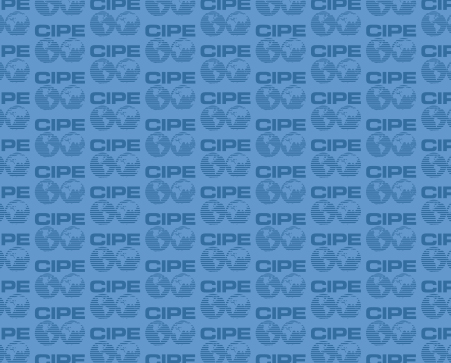
When President Reagan delivered his Westminster address to Members of the British Parliament 35 years ago today, he predicted the downfall of the Soviet Union and called for a campaign to support democracy around the globe. What Reagan could not have predicted when he made that famous speech was that his campaign to support democracy would be as needed in 2017 as it was in 1982.
The violent extremism, conflict between states, unequal economic opportunity, and migration crises afflicting the world today are causing some to question the continued viability of the liberal-democratic values that Reagan championed. The belief that democracy, economic freedom and rule of law provide the “not so-secret sauce” for sustainable human progress is being openly questioned in capitals around the world.
In a results-based world we should be ready to scrutinize liberal-democracy’s track record.
To be certain, one outcome of liberal democracy – globalization- has done an impressive job of alleviating human suffering in the last quarter century. Our global health indicators, poverty reduction goals, and literacy rates all figure in the plus column. Societies are more resilient when disaster strikes, and the emergence of global standards on labor, environment, and anti-corruption are all leading to a more ethical and sustainable development pattern driven by the private sector.
However, while strides have been made to ensure a basic level of human existence, many societies still fail to provide their people with a path to a better life. In many countries citizens live in a world of governance failures and inequalities perpetuated by vested interests, corrupt elites, and authoritarians who understand that broad-based opportunity threatens their status-quo. Indeed, if we look at where we see the greatest threats to global stability we see the hand of corrupt authoritarians, be that in the Middle-East, Venezuela, or Russian aggression in Ukraine.
It’s notable that those regimes most likely to cause instability are those which are quickest to point towards liberal democracy as the cause of the world’s problems. Our cold war of times past, in which liberal democracy and communism fought for supremacy, has been replaced by a new war in which our values are now questioned by those whose only ideology is that of authoritarianism and kleptocracy.
Looking back on the experience of the last 35 years, many of the world’s problems don’t stem from the failure of liberal democracy, rather a failure to more actively pursue its consolidation, and ensure that the economic and social benefits of democracy penetrated throughout societies. As the causes of disorder are man-made, so are the solutions. Support for economic development overseas must continue its emphasis on getting governance right, providing opportunity for all to participate in an economic life, and encouraging open societies to reinforce values and institutions that include respect for property as a human right, free media, and democratic space.
When governments get these things right, all citizens benefit. The proof of this lays in what we can take from the current migration crisis in the Mediterranean. Migrants making the perilous boat journey to Italy’s southern shores are not coming from Tunisia where a democratically oriented government seeks to build democratic consensus on economic growth, but from its neighbors where poor governance and lack of opportunity drive desperate people to do desperate things. Tunisia shows us that the goals of the Arab spring, when consolidated in democratic values can bring relative stability. Tunisia’s goal now is to wring greater economic opportunity from the governance and democratic strides made by a revolution whose roots lay in economic discontent.
Globalization must also come to represent opportunity for all – technology, such as EBay and other online trading platforms, is breaking down international barriers to trade for micro and small entrepreneurs, and the WTO’s Trade Facilitation Agreement, if enforced, will smash non-tariff barriers that keep the little guys from trading across borders.
A quarter century of democracy support has shown that the most effective path forward is not to export nation building, or embrace foreign models, but rather to support and encourage the development of local voices for reform, and domestic expertise that can guide societies on their own path to good governance. In many countries these brave voices are now at risk, as years of neglect have led to their increasing isolation and in many cases repression. These are the world’s authentic voices of moderation, they alone are in a place to counter local extremism, advocate for opportunity, and chart paths for good governance.
While not always perfect, liberal democracy offers the most sustainable and equitable path to confronting the challenges facing the world, and it’s the best way we know to create long lasting jobs. An employed and prosperous people rarely resort to violent extremism, conflict, or emigration. For our government to reach its policy goals, it would be well served to look to the wisdom of Ronald Reagan who understood that markets and democracy were the best responses to the challenge of his time, and are timeless in their relevance today.
Andrew Wilson is the Managing Director at CIPE.
Published Date: June 08, 2017